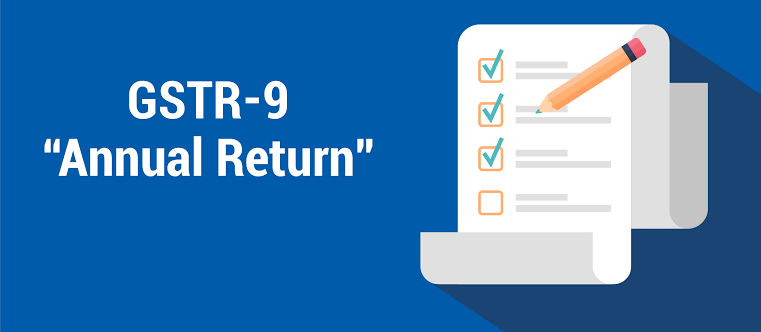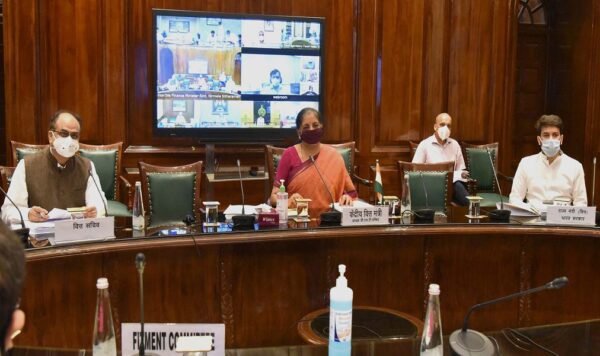The much-awaited Goods and Services Tax (GST) Council meeting is likely to be held on August 27 and another meeting will be scheduled on September 19, said senior government sources.
As decided earlier by the council itself earlier, the August 27 GST Council meet, which will be the 41st Council, will be to discuss a single point agenda that is to iron out measures to meet the compensation requirements to continue to pay off states. The 42nd GST Council meet, scheduled for September 19 will be a full council meet to discuss other agenda items, sources added.
Both the meetings will be via video conferencing. According to people in the know, the council in 41st Council is likely to discuss various proposals to raise funds in the compensation cess kitty.
The suggestions here are to either go in for an overall rate rationalization exercise or expand the cess kitty by levying cess on more items or to hike the cess quantum on sin goods, such as cigarettes, pan masala and aerated drinks.
However, important to note here is that the suggestions of rate rationalization and expansion of cess kitty were ruled out as an immediate option in the last few GST Council meetings, held in September 2019, December 2019 and March 2020.
“The suggestion on hiking cess quantum on sin goods have come from several states including Delhi, Punjab, Goa, Bihar and a few other, who have argued that council can consider mobilizing funds these three sin goods, currently, do not attract the maximum cess levy allowed under the cess rules.”
According to the current GST rate structure, some of the sin goods that attract a cess include cigarettes, pan masala and aerated drinks. Apart from sin goods, luxury products like cars also attract a cess.
Currently, pan masala attracts 100 percent cess and the upper ceiling as per the cess rules to which the cess rate can be hiked is 130 percent, implying that the GST Council, if it decides, can hike the cess rate on pan masala by another 30 percent.
Similarly, aerated drinks attract a cess of 12 percent and the maximum limit permissible in the law is 15 percent, so if the council decides, another 3 percent cess can be added.
For cigarettes, the maximum possible cess that can be levied is 290 percent ad valorem plus Rs 4,170 per thousand sticks. Currently, not all categories of cigarettes attract Rs 4,170 per thousand sticks additional burden and this is levied on the quantity front, only one specific kind of cigarettes. In terms of cess percentage, a maximum of only 36 percent cess is what cigarettes attract as of now.
Implying, the GST Council has a window of 254 percent additional cess that can be levied. However, it is unprecedented that the council increases the cess percentage on any item to the maximum possible limit in one go.
Meanwhile, apart from the proposal to hike cess, the other options which could be considered by the Council include the idea of market borrowing. But sources in the know told CNBC-TV18 that the Centre is likely to suggest states to borrow to meet the GST shortfall and on the other hand, states are likely to ask Centre to borrow to compensate the states.
This idea has been discussed by the council already twice, but no concrete decision has emerged as both Centre and states have raised serious reservations.
It is also understood from sources that the Attorney General of India has already given the legal view that centre is not liable to compensate the states for a loss that is not on account of the rollout of GST and is because of economic slowdown and natural calamities such as the pandemic.
The other possible option, which the Centre is likely to discuss is how states and Centre can relook and go in for serious measures for better and efficient revenue realization.
An example of this was seen recently when the Delhi government had sent notices to 5,584 companies under GSTR Act 3A for not filing tax returns and Value Added Tax notices to 36 companies for not filing tax returns.
In its press release, the Delhi government said it was working to increase revenue for development works and also anti-COVID measures, “During the review process, it was found that 10800 companies registered under GST have either paid no tax or paid lesser tax to the Delhi government in the last quarter,” adding that action had been initiated against these companies.
According to Manish Sisodia, deputy chief minister and finance minister, nine sectors namely auto, electronics, e-commerce, insurance, pharma, financial services, consulting, security and healthcare had not been affected by the COVID-19 pandemic.
Meanwhile, the 42nd GST Council meet, which will be a full agenda meet, is likely to discuss other agenda items such as the creation of GST Tribunals.
The industry has sent a fresh SOS to government. “Industry has demanded early constitution of GST Tribunals, for timely resolution on determining the tax liability and on claims of wrong utilisation of credit,” sources told CNBC-TV18.
“Industry says that absence of GST tribunals is leading to cases getting piled up at courts for timely resolution on determination of the tax liability and on government’s assessment of wrong utilisation of credit,” sources added.
The government has arrest powers in cases of wrong utilisation of credit and delay in payment of taxes where tax liability more than Rs 5 crores. Section 69 of CGST Act provides for arrest on ‘reasons to believe’.
Industry says, that GST Tribunals would have helped in getting timely clarity on tax liability to ensure arrest warrants do not get issued for top management of companies and MSMEs to avoid arrests and bail procedure, sources said.
About 1620 matters related to fake invoices were reported in 2018-19 with alleged evasion of Rs11,251 crores.
Experts see that absence of GST Tribunals has been a long pending demand of the industry. Abhishek Rastogi Partner Khaitan & Co and leader of CII Delhi GST Taskforce says, “While the recently announced Tax Charter provides to treat every taxpayer as honest, GST arrest provisions based on ‘reasons to believe’ may lead to dichotomy. Interestingly, arrests have been made without concluding the investigation process. The issuance of charge sheet is not enough as the show cause notice should be adjudicated before concluding on the offence.”
“The other hardship remains the absence of alternate remedy due to non-formation of the GST Tribunals. This responsibility can be extended to the existing Tribunal (CESTAT) to address urgent matters. This issue can be concluded only after the Apex Court decides on various aspects including the validity of arrest provisions. The validity of the circular issued to provide relief to certain categories of persons may have to cross the test of constitutional validity in the case challenged by the aggrieved”, Rastogi, who is already arguing plethora of writs on arrest provisions under GST added.
Source: CNBCTV18.com
***
[rainbow]Don’t miss the next GST Update / Article / Judicial pronouncement[/rainbow]
Subscribe to our newsletter from FREE to stay updated on GST Law
Resolve your GST queries from national level experts on GST free of cost.
TW Editorial Team comprises of team of experienced Chartered Accountants and Advocates devoted to spread the knowledge of GST amongst the various stakeholders.




